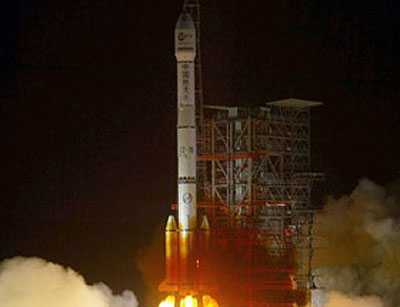Fixing ITAR: the saga continuesby Taylor Dinerman
|
| The ITAR process is doing more and more serious harm to the US space industry. The problem is not susceptible to an easy legislative fix. |
The GOP-controlled Congress brought intense pressure to bear on the Clinton Administration to tighten up export controls, and forced the shift of final authority for s[ace products from the Commerce Department to the State Department. Almost immediately the US industry felt the effects. Exporters soon discovered that there was a new sheriff in town and that he had a mean streak. Foreign governments and companies which had long-established relationships with American companies faced new, and unexpected, sets of obstacles to doing business with America. Unlike the days of the COCOM, where the rules were well understood and there was a sense, however tenuous, of solidarity, allies such as Britain and Canada found themselves being treated in the same way as Russia and China.
In the 1980s, the Reagan administration used the COCOM to restrict the USSR’s access to Western technology. They pushed as hard as they could to prevent Soviet Russia from gaining access to even the simplest types of computers. According to Norman Friedman’s history of the Cold War (The Fifty Years War, Naval Institute Press) they were reduced to buying Hewlett Packard calculators in order to salvage the microchips to equip their nuclear warheads. The US was able to occasionally sell sabotaged chips to the Soviets, which meant that they had to individually test each of their illicitly procured items, adding considerably to their cost.
This did not go down well with America’s allies, or with many US businessmen, who saw the Communist superpower as a corrupt customer, rather than as a threat. In the 1990s, the same logic applied to Saddam’s Baathist regime. Today, it is evident in the efforts to break the arms embargo against China, or the way the Iran nuclear program is being handled. There are probably a few merchants out there who are happy to go on selling dual-use technology to North Korea. In that case, however, even the most masochistic salesman must eventually give up if, year after year, the client refuses to pay for the merchandise.
| The US space industry has been harmed by the post-1998 tightening of the export control process: there can be no doubt about that. From a foreign policy perspective this looks like yet another counterproductive US sanctions policy. |
The problem with export controls is a variation on what economists and some environmentalists call “the tragedy of the commons.” A good example of this is the fact that fishing in international waters is completely out of control and threatens to exhaust the world’s fisheries. No nation wants to restrict its take because they know that, if they did, somebody else would just step in and grab the fish. ITAR is America’s way of restricting its own exports of dual-use technology without having any impact on what other nations are willing to sell. This situation is rapidly becoming unsustainable.
The complex interagency process for deciding which items belong on the munitions control list moves at the speed of the Washington bureaucracy, while the private sector is moving much faster (even if they are not nearly as fast as they think they are.) In February 2002, the State Department announced that they were going to try to streamline and automate the export licensing process. Three years later, it seems that not much has changed.
The US space industry has been harmed by the post-1998 tightening of the export control process: there can be no doubt about that. These regulations may have slightly retarded the development of certain types of weapons by America’s adversaries but, if so, there is probably no way to prove it. Economically there is no way this situation can be rationally justified. Militarily the benefits are so hard to detect as to be almost certainly close to nil. From a foreign policy perspective this looks like yet another counterproductive US sanctions policy.
It is up to the State Department to take the lead—and also to take the risks—and begin to use the waiver authority built into the law. This may be difficult, but if the Secretary of State herself were to get out front on this issue, an acceptable, temporary solution might be found. In the long term, the only decent outcome would be the reestablishment of the COCOM or an institution with comparable clout and legitimacy. To achieve such a goal the US must be ready to use some sharp elbows, particularly with the World Trade Organization. Like the US constitution, free trade cannot be regarded as a suicide pact.
